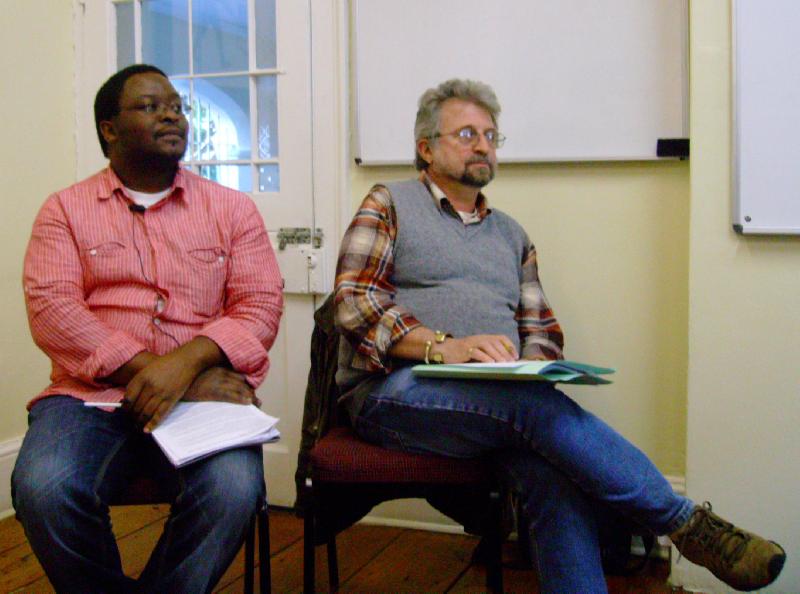
Academic powerhouses met during a Faculty of Humanities seminar this week to explore the relation between South African civil society and xenophobia.
Discussant Mr Mazibuko Jara, who is editor-in-chief at Amandla! South Africa’s new progressive magazine standing for social justice, presented the findings of an extensive enquiry commissioned by The Atlantic Philanthropies. The enquiry looked into the role of civil society in issues surrounding xenophobia and in particular the swift and efficient response of civil society to the xenophobic violence of May 2008.
This extraordinary mobilisation of people and resources represents a peak in Civil Society activity since the ‘94 voter registration drives. Jara, who was a contributor to the research, espoused the view that such a prodigious humanitarian drive to assist victims bodes well for the future of civil society, but that civil society has failed to use this enormous momentum to ensure continued protection of foreigners’ human rights.
Jara proceeded to summarise the wide range of case studies which constitute the paper. Aspects such as the parts played by the media, the corporate sector and various faith-based organisations across a variety of locales were examined.
The exhaustive range of humanitarian responses on the part of civil society stood in stark contrast to the government’s impotent reaction. Civil society, in fact, assumed the role which should have been played by the state.
A keynote tribute address in remembrance of the victims of May 2008 by then President Mbeki suggested that xenophobia was not, in fact, the motivation for the attacks, and that it is virtually absent from South African society*. The resultant pressurisation or ‘shaming’ of the state also led to interesting sociological dynamics.
The explanation for May 2008 proffered by the paper centres around deep-seated socio-economic inequalities, rapidly escalating immigration (and rural-urban migration), fierce competition for residential and retail space as well as a national psyche which was ravaged by the atrocities of the past, and is still ensnared in the collective anxiety of post-traumatic stress. Racism, rampant police brutality towards foreigners and the ANC’s preoccupation with nationalist discourse were also blamed.
The respondent Professor Michael Neocosmos, who has researched and written extensively on human movements and migrations, expressed a certain level of scepticism and suspicion with regard to what he termed flawed thinking and problematic explanations in the research.
An explanation which centres around poverty can account for social desperation but not for the violent reaction nor for its targets who were, for the most part, as marginalised and impoverished as their assailants. Implying that xenophobia is a malaise of the poor is misleading and unfair.
South Africa is a deeply xenophobic society at all levels and segments, says Neocosmos. This is evidenced by the continued existence of legislation which closely resembles the notorious pass laws of yore, which obliges non-South African citizens to bear identity documentation at all times.
Neocosmos looked to law, state policy, political thought, and political agency to construct an explanation for the antisocial outburst. He notes that a culture of public xenophobia has emerged which legitimates the bothering of foreigners. There is also a considerable emphasis placed on indignity which is manifested in Black Economic Empowerment and other policies.
Pic: Mr Mazibuko Jara and Professor Michael Neocosmos.
* Former president Thabo Mbeki’s full speech can be accessed at: http://www.info.gov.za/speeches/2008/08070410451001.htm
